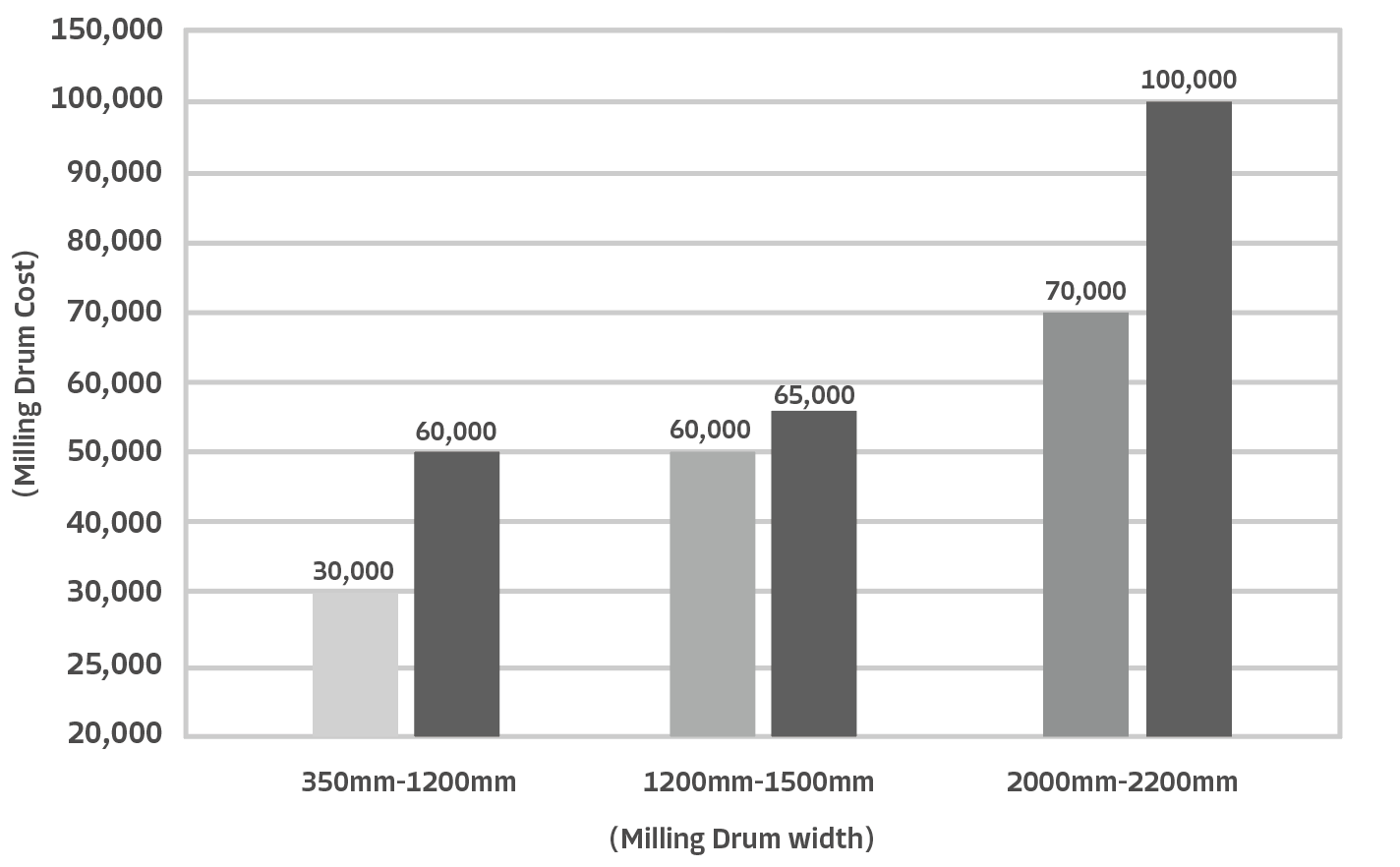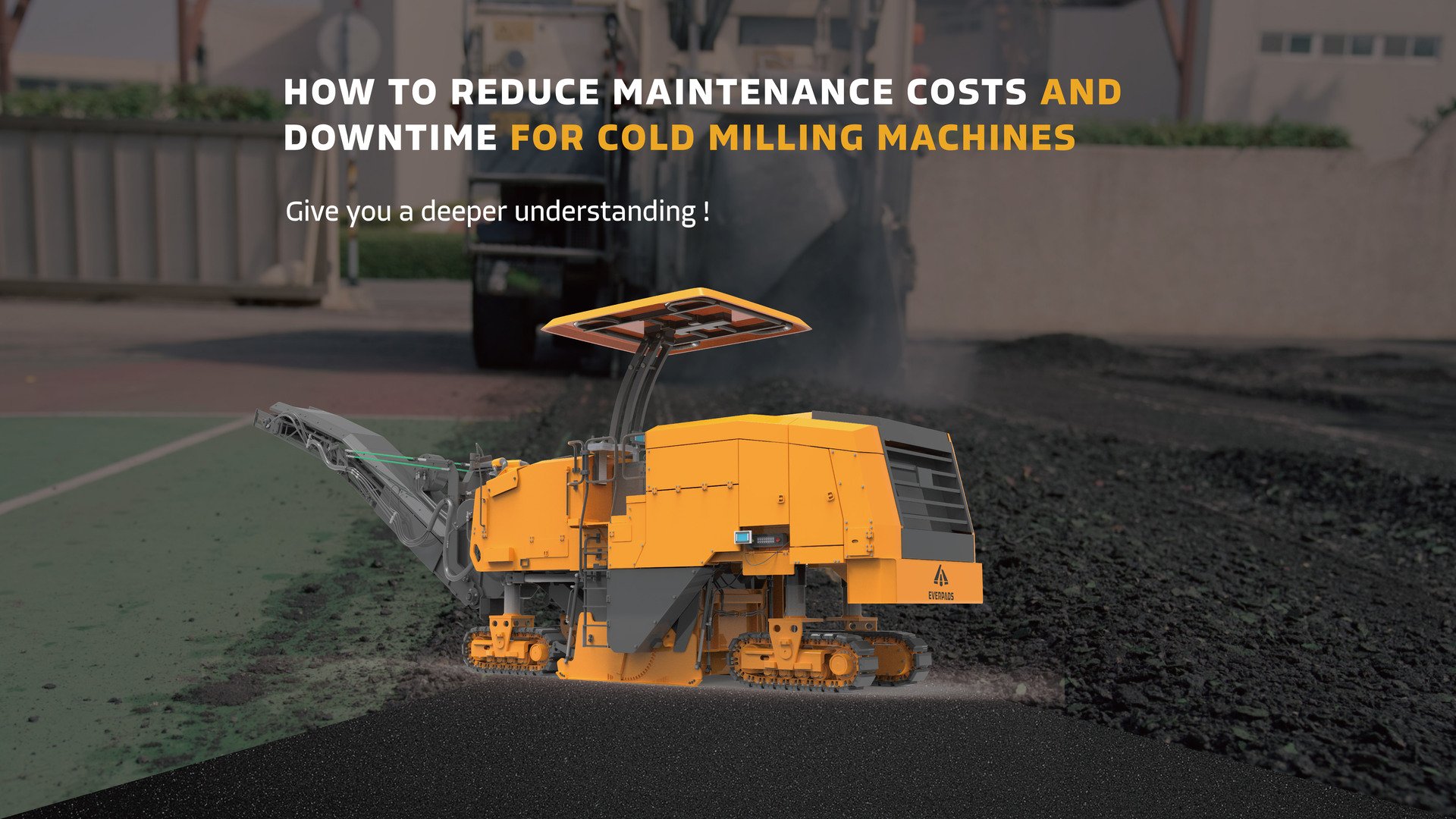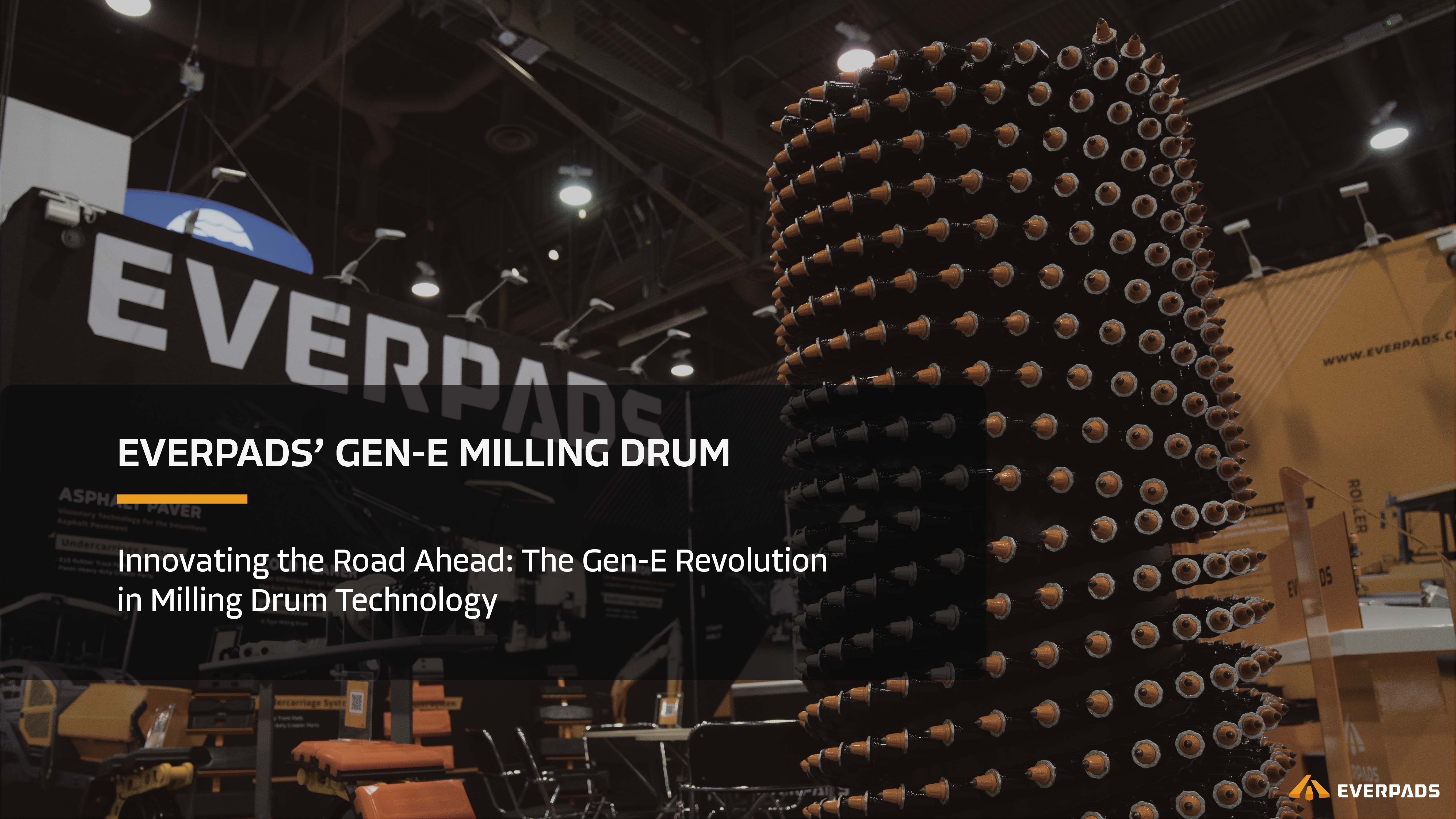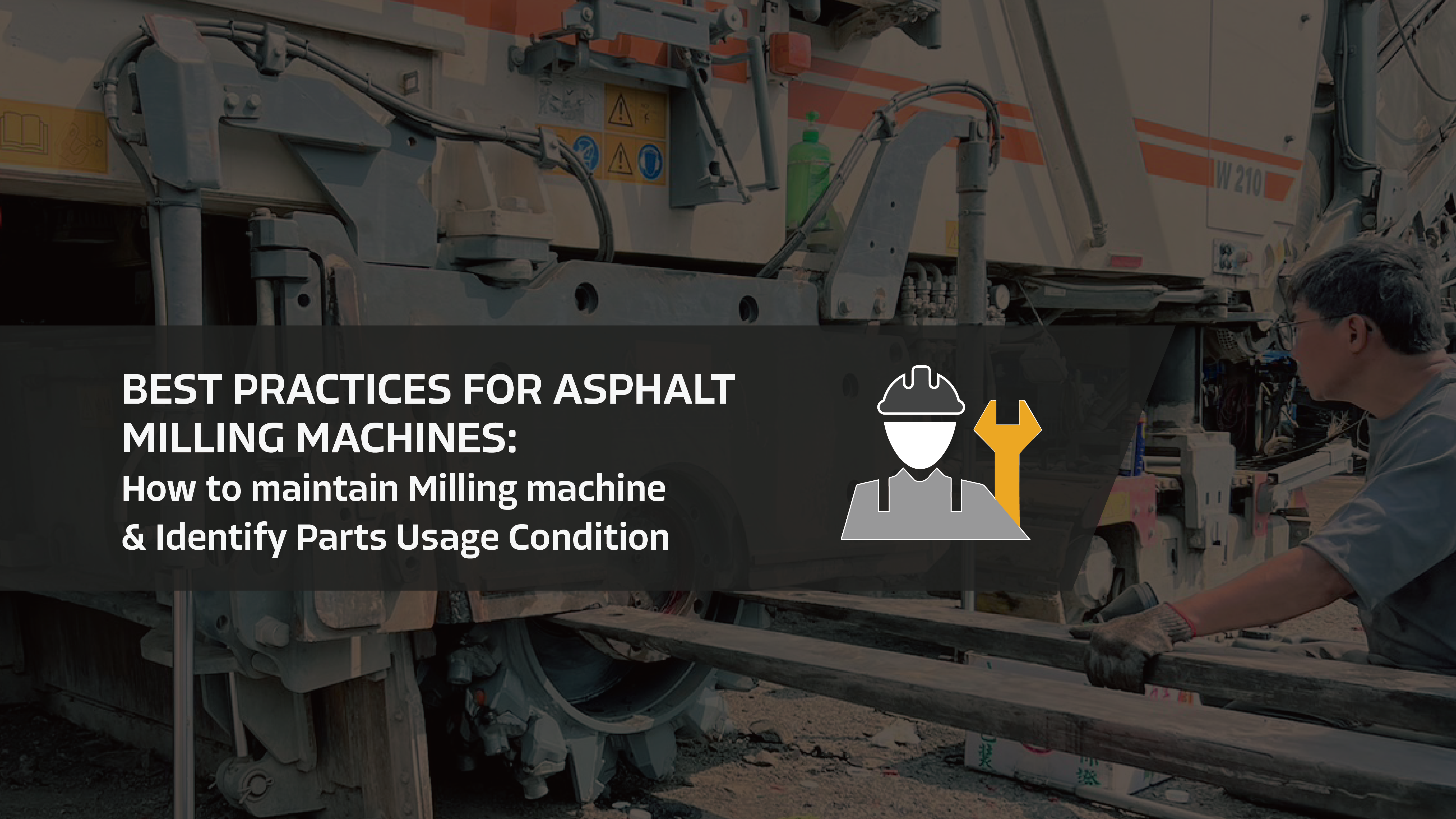Reenergize Your Asphalt Milling Machine: Is Replacing the Drum Worth It? Or Replace the Entire Machine
02. Oct. 2023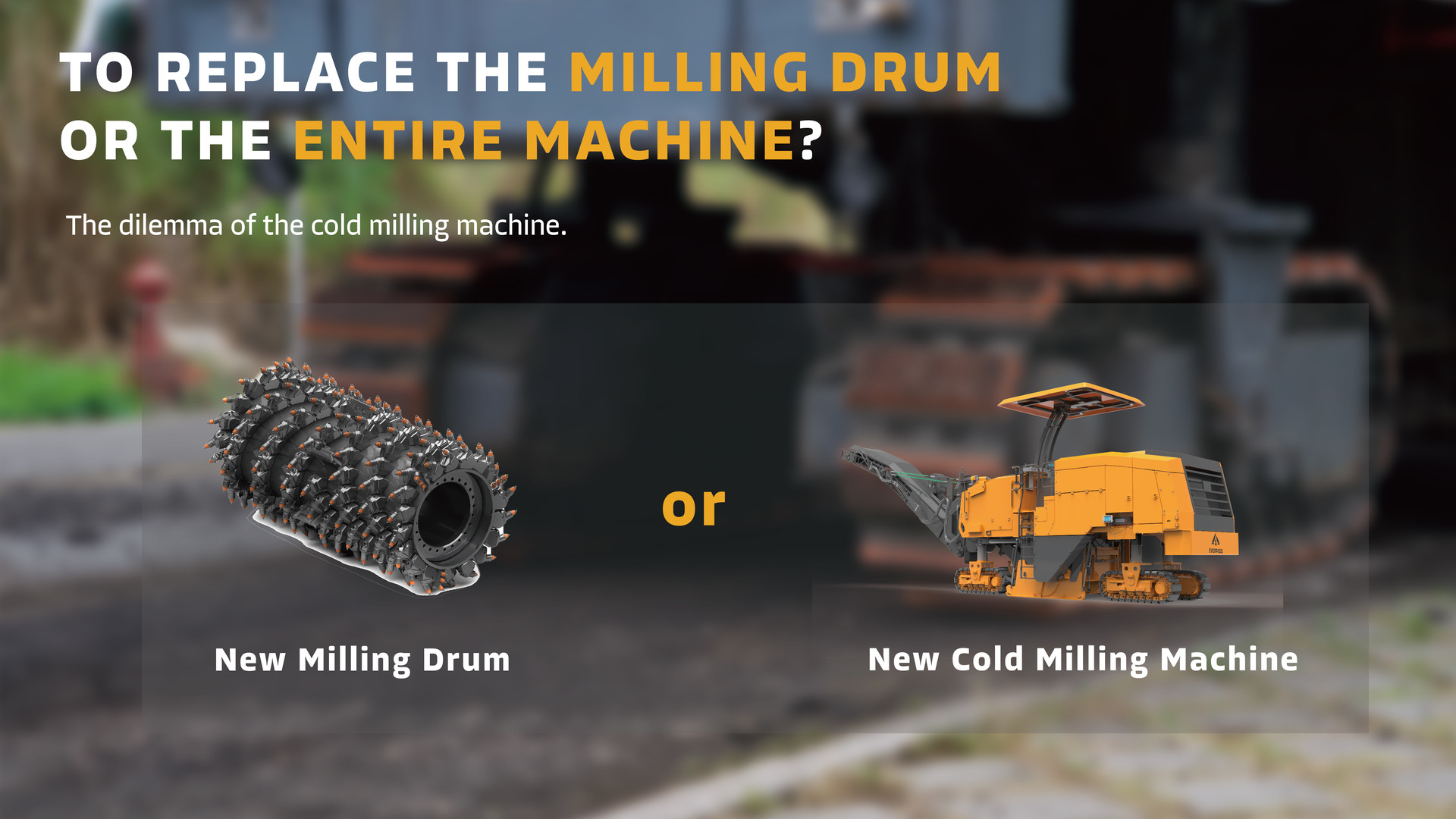
In the world of construction and roadwork, the decision to rejuvenate your cold planer takes center stage: Is replacing the drum worth the investment, or should you opt to replace the entire machine? This pivotal choice resonates with companies as they navigate the complexities of equipment maintenance and performance enhancement. When faced with the prospect of changing the milling drum for the first time, the allure of a new milling machine may seem compelling. Yet, as we delve into this dilemma, we uncover the multifaceted considerations that drive the decision-making process. Join us on this journey as we unravel the key factors and reveal the reasons why reenergizing through drum replacement could be your best option.
Table of Contents:
1. The Lifespan of a Cold Planer
2. The Lifespan of a Milling Drum
3. The Role of the Milling Drum
4. The Cost of a Milling Drum
5. Cost of a new cold planer
6. Choosing Between Drum Replacement and New Machine Purchase
7. Deciding Which Path to Choose: Factors to Consider
8. Choosing the Right Drum Replacement
9. Conclusion
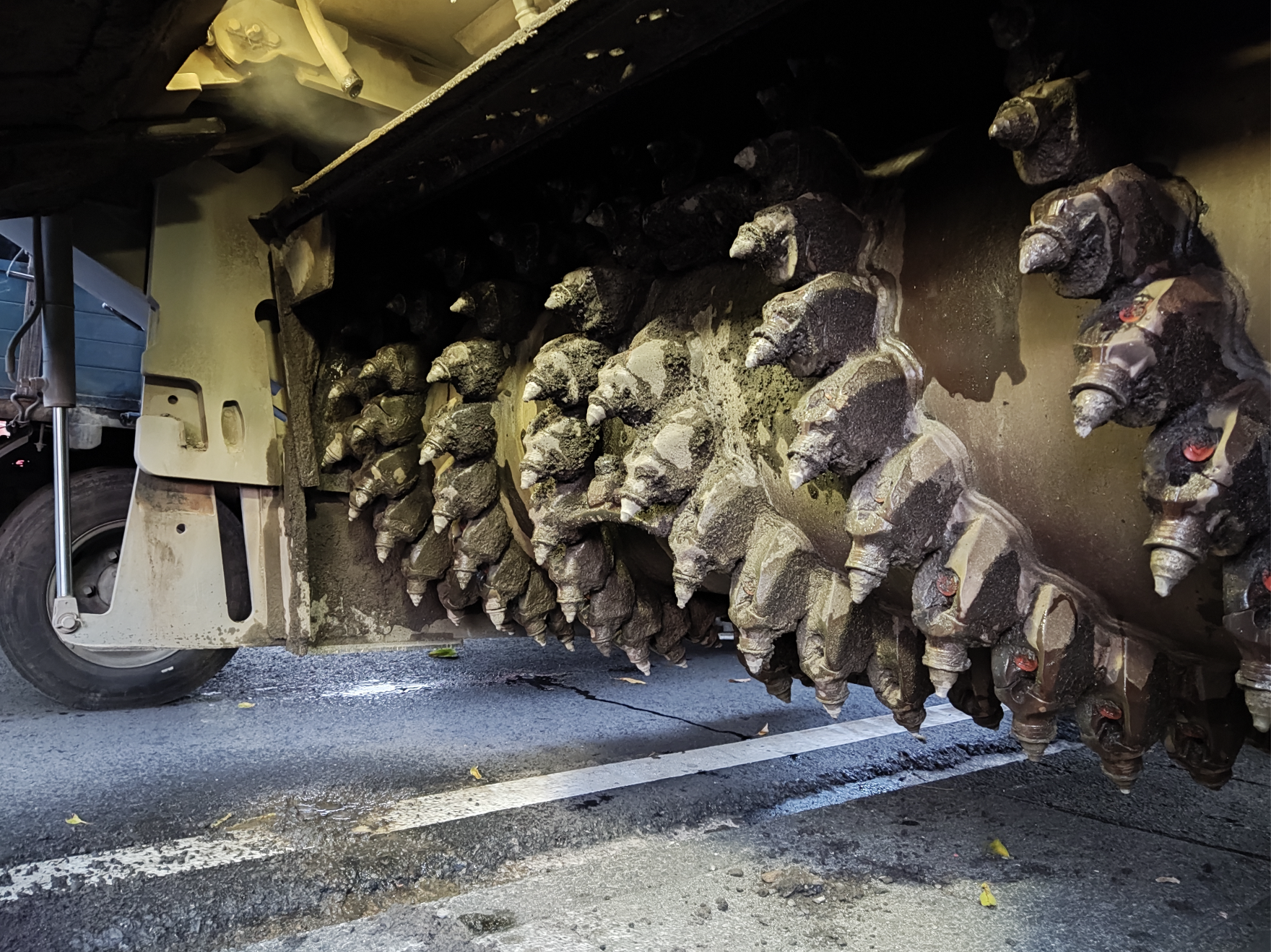
The Lifespan of a Cold Planer
The lifespan of a cold planer can vary widely depending on several factors. On average, a well-maintained and regularly serviced cold planer can last anywhere from 5-to-10 years or even longer. However, factors such as heavy usage, harsh operating conditions, inadequate maintenance, and lack of proper care can significantly shorten its lifespan. It's crucial to prioritize maintenance, the proper operation of the cold planer, and to address wear and tear promptly to extend the machine's operational life.
The Lifespan of a Milling Drum
On average, a milling drum is designed to withstand approximately 3,000 working hours, which translates to roughly 2 years of operation. However, this lifespan can vary based on factors such as the intensity of usage, the type of materials being milled, maintenance practices, and the environment in which it is utilized. Regular inspections, routine maintenance, and addressing signs of wear are essential to ensuring that the milling drum operates at an optimal level throughout its expected lifespan.
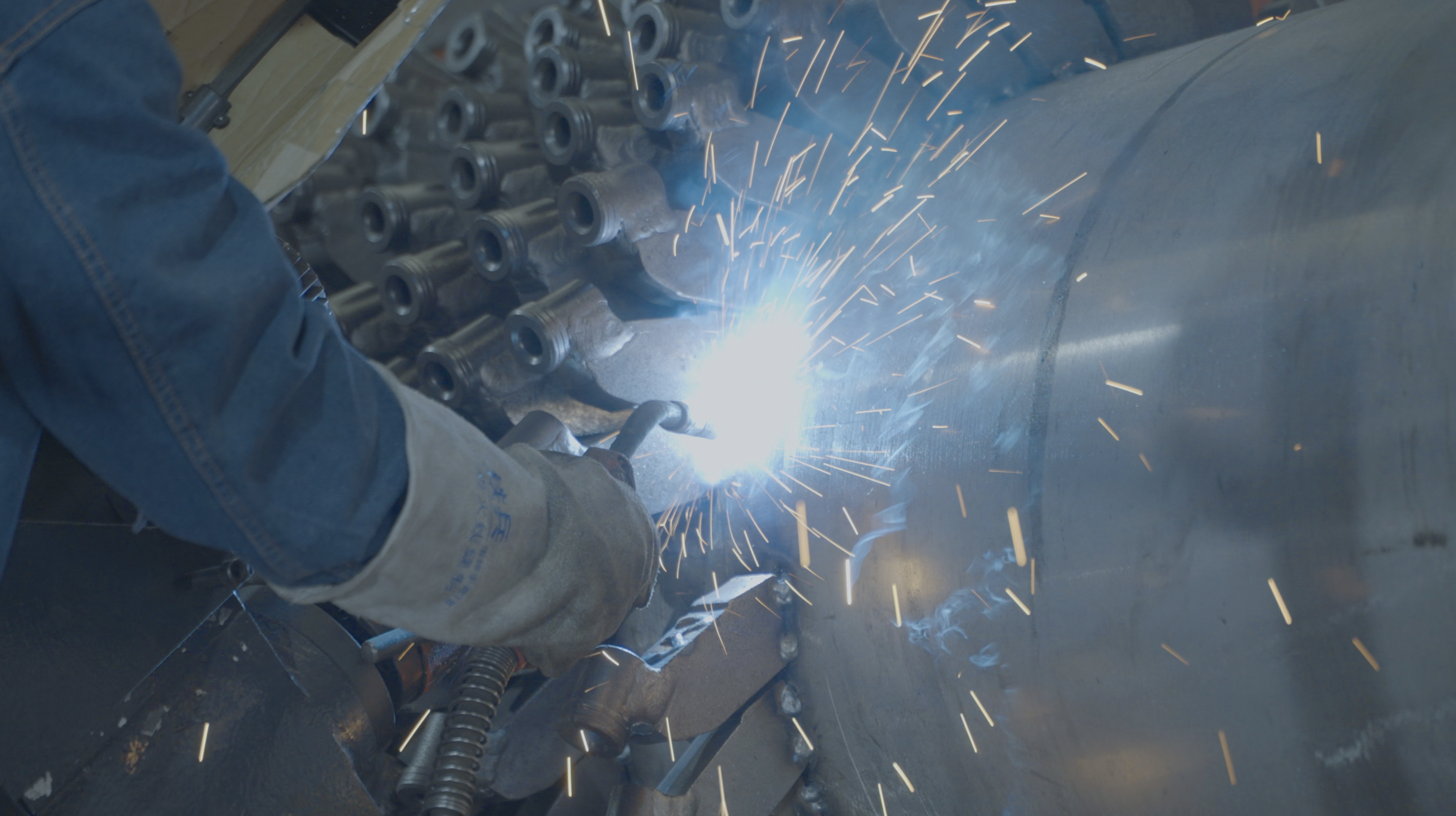
The Role of the Milling Drum
At the heart of a cold planer lies the milling drum—an unassuming yet indispensable component that defines the machine's capabilities. The milling drum is entrusted with the formidable task of breaking and removing asphalt or concrete surfaces, leaving behind a smooth and even finish. Its cylindrical body, adorned with strategically positioned cutting teeth, bears the brunt of the material milling process. As the drum rotates, these teeth meticulously chip away at the road surface, transforming it into reusable materials.
Explore Everpads solution for cutting tool: Everpads Technology- Gen-E Milling Teeth
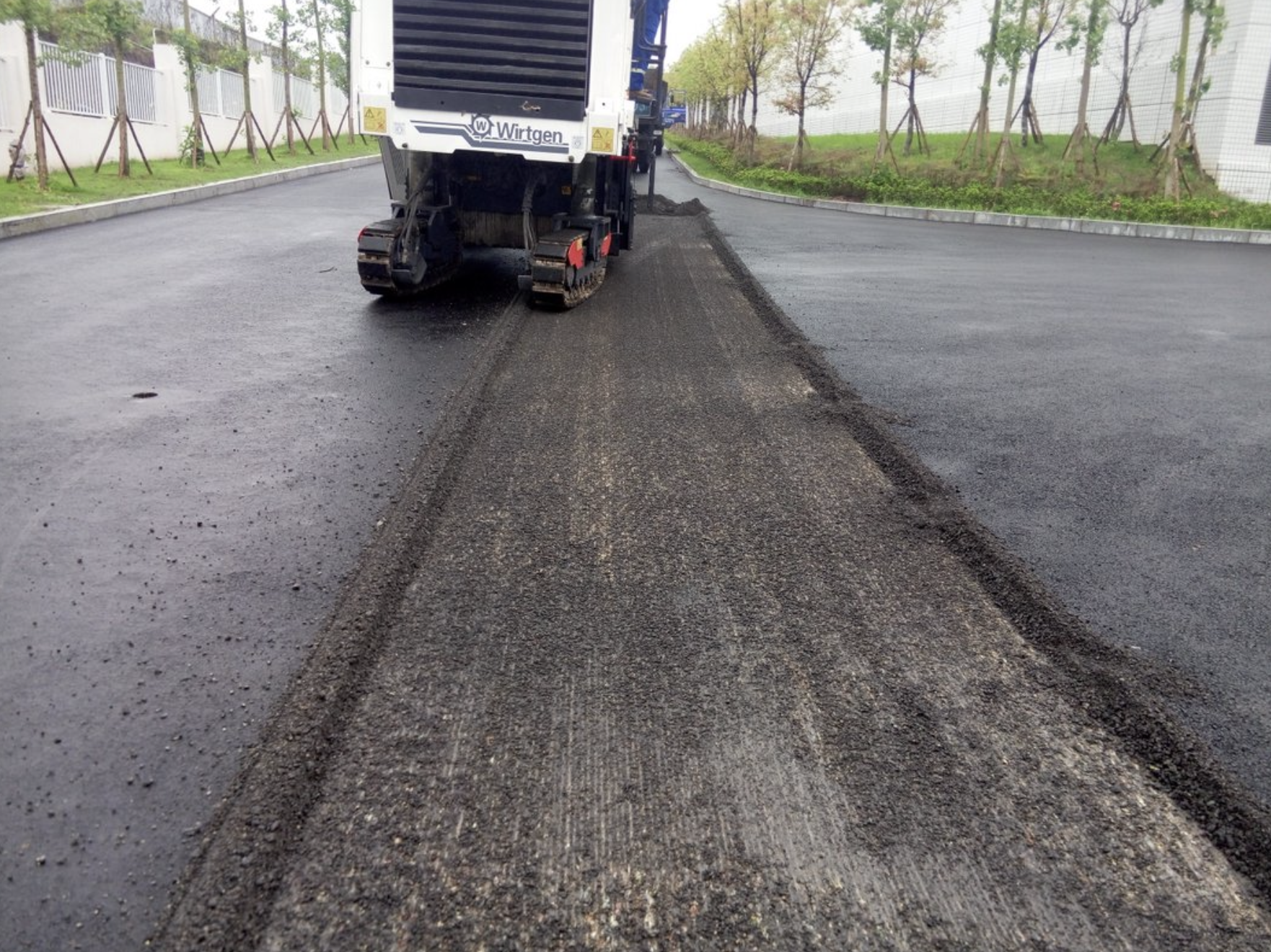
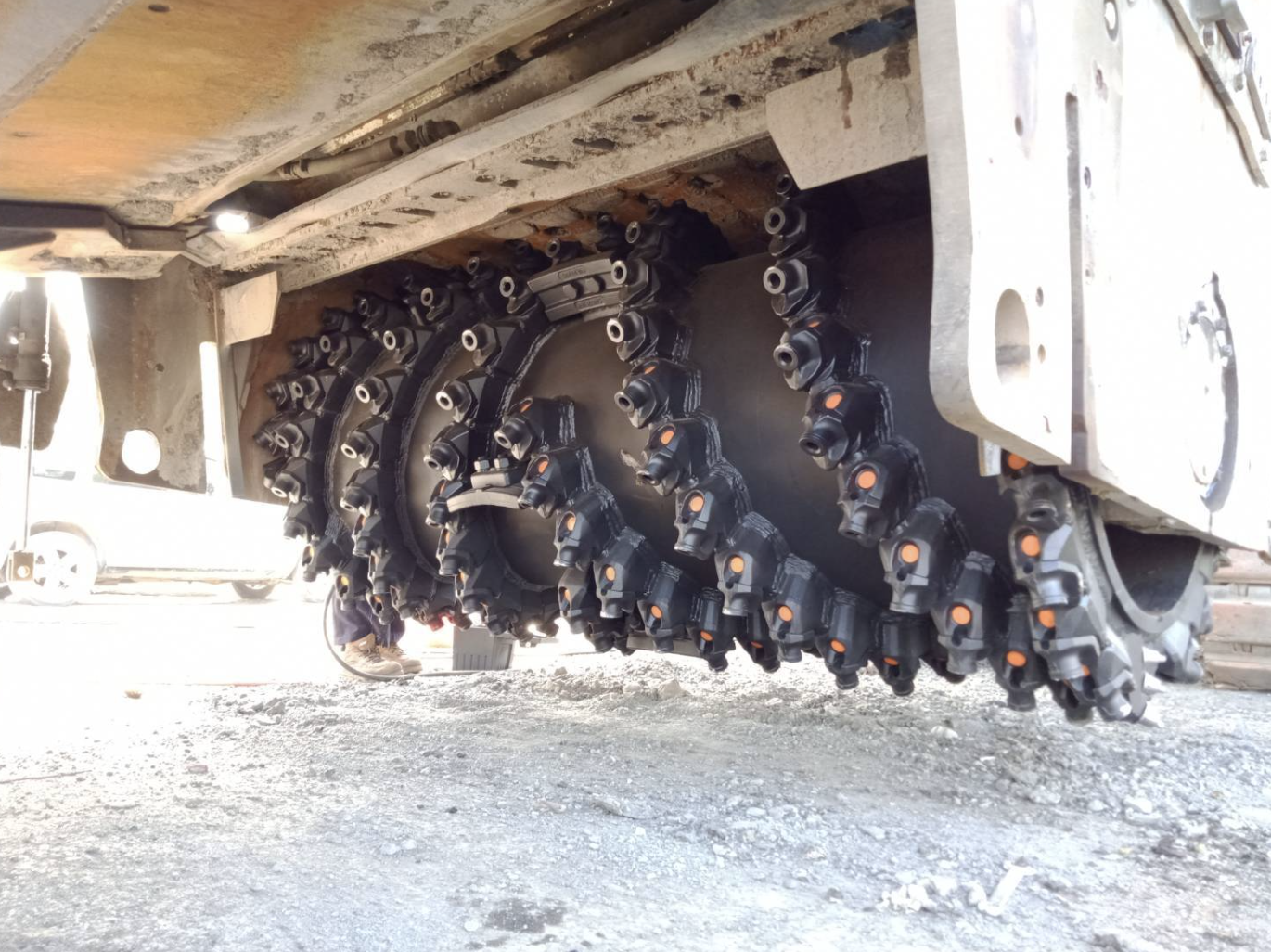
The precision of the drum's operation directly impacts the quality of the outcome, determining the uniformity of the milled surface. This tireless work, however, can take a toll over time, subjecting the drum to repeated wear and tear. Gradual erosion of the cutting teeth and tool holder and base abrasion from challenging materials, and the accumulation of damage can compromise the drum's efficiency and accuracy. This degradation cascades to the cold planer's overall performance, leading to suboptimal results and potentially necessitating more frequent and costly maintenance. The milling drum's vitality underscores the significance of its condition, inviting careful consideration when contemplating replacements.
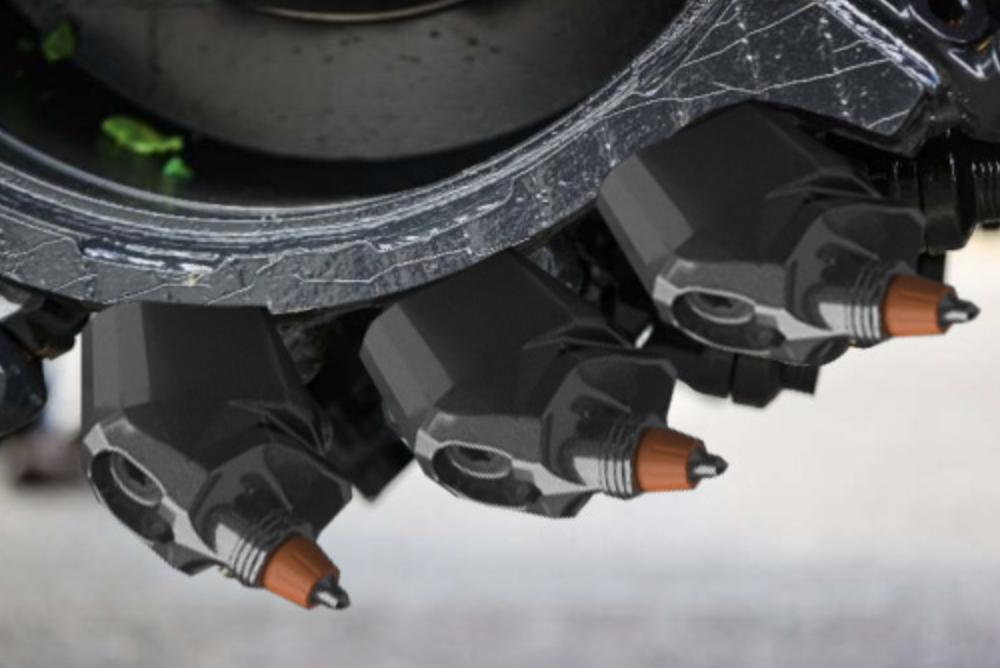
The Cost of a Milling Drum
The cost of acquiring a milling drum can range between $30,000 and $100,000 USD. The amount depends on several factors, including the width of the drum and the arrangement of its cutting teeth, which are commonly referred to as space alignment or the quantity of milling picks. The drum's width significantly impacts its coverage area and milling efficiency. A broader drum can cover more ground in a single pass, which can boost overall productivity. The configuration of the cutting teeth also influences the drum's operational effectiveness. The density and arrangement of these picks intricately contribute to milling quality and depth. While the initial investment may fluctuate based on these parameters, it's crucial to view this outlay in light of the tangible benefits that it yields. This can include heightened milling performance, improved surface finishing, and a prolonged operational lifespan for the machine.
Cost of a new cold planer
The cost of acquiring a new cold planer can vary significantly based on factors such as the model, specifications, and optional features chosen. For instance, a compact Wirtgen cold planer model designed for smaller projects might have a starting price of around $150,000 to $250,000 USD.
On the other hand, larger and more advanced Wirtgen models that are equipped with cutting-edge technology and capabilities could range from $400,000 to $1 million USD or even more.
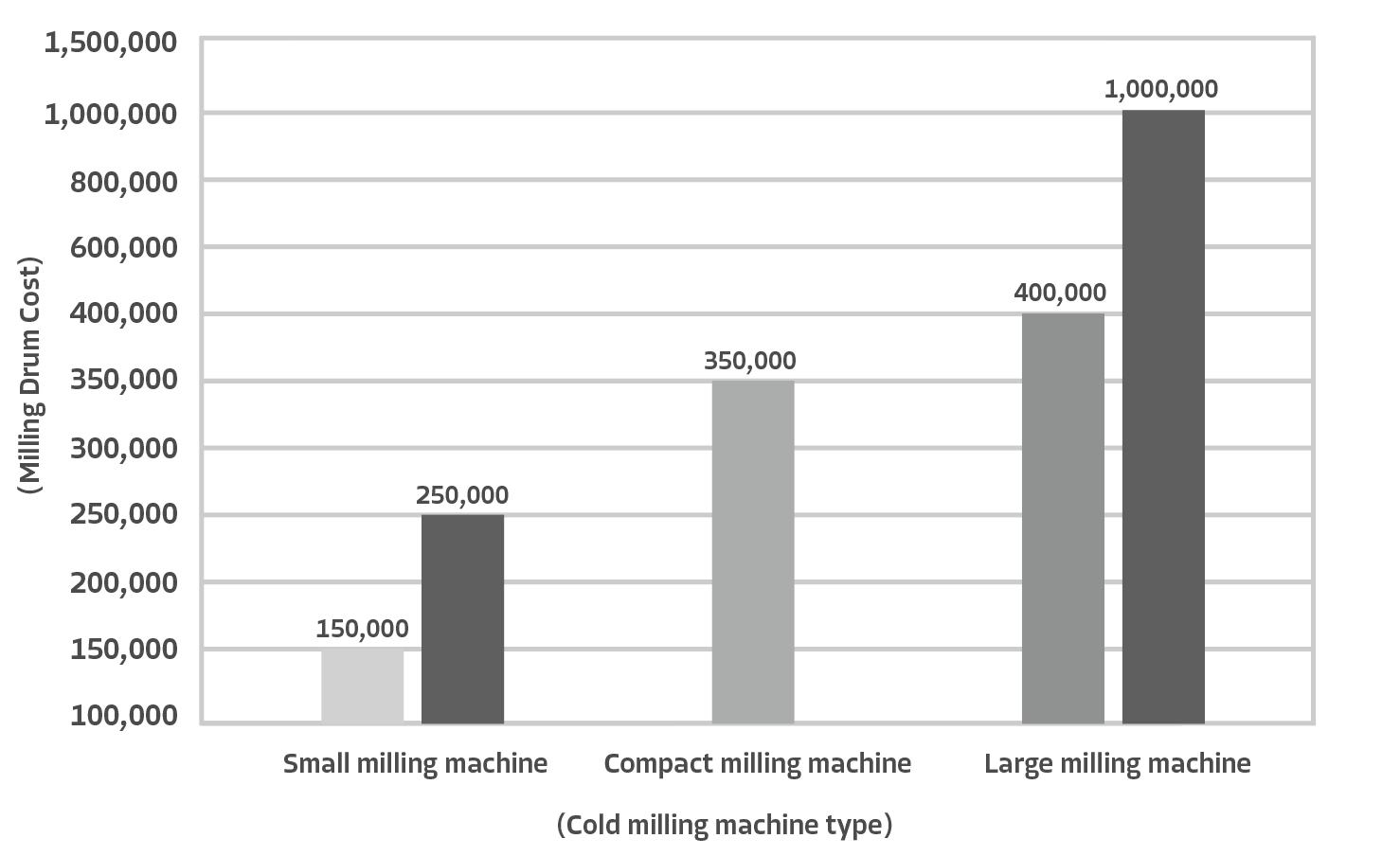
Choosing Between Drum Replacement and New Machine Purchase
Given these costs, it is critical to make the right choice when deciding whether to purchase a new milling machine or opt for a drum replacement. A new milling machine offers the allure of cutting-edge features and enhanced efficiency. A drum replacement, however, amounts to a strategic choice of addressing a vital machine component. Whatever you choose, the decision extends beyond economics, impacting operations, timelines, and environmental considerations. Join us as we explore the decision-making process for choosing whether to reenergize your machine through the drum's renewal or embrace the possibilities of a new cold planer.
Benefits of Replacing the Drum
Replacing the drum can yield significant benefits including:
-
Cost Savings: Replacing a worn or damaged drum often presents a substantially more economical choice compared to the costs of acquiring a new machine. The financial outlay required for drum replacement can be dramatically lower, effectively preserving operational budgets.
-
Enhanced Efficiency: The introduction of a new milling drum can lead to immediate and noticeable improvements in machine performance. A rejuvenated drum ensures smoother operations, optimal milling results, and increased overall output.
-
Environmental Benefits: The decision to opt for drum replacement aligns with sustainable practices. By replacing a specific component rather than discarding an entire machine, waste is minimized, reducing the ecological footprint associated with equipment replacement.
-
Extended Machine Lifespan: A cold planer's lifespan can be prolonged by addressing its critical component—the drum. With regular drum replacements, the overall machine's longevity is extended, yielding greater value from the existing equipment.
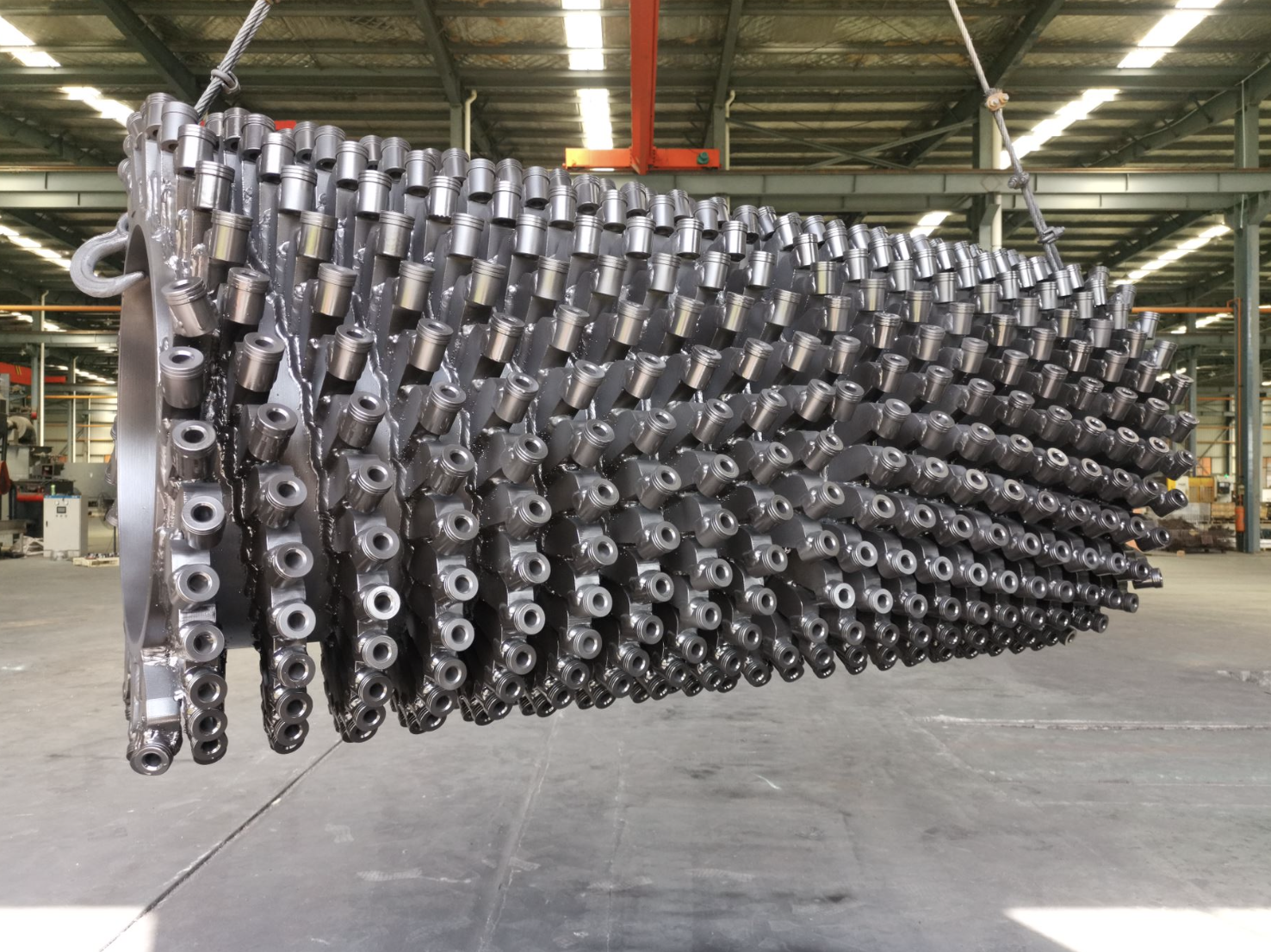
Benefits of Purchasing a New Cold Milling Machine
While replacing the drum offers some advantages, the decision to invest in a new cold milling machine also yields some benefits that warrant consideration. These include:
-
Technological Advancements: New machines often incorporate the latest technological innovations, enhancing operational efficiency, precision, and overall performance.
-
Expanded Capabilities: Acquiring a new machine can unlock enhanced capabilities, such as increased milling width, depth, and the ability to handle diverse materials. This in turn can translate to a broader project scope.
-
Efficiency Gains: Modern milling machines offer a higher level of efficiency, potentially reducing project timelines and operational costs through improved productivity.
-
Long-Term Investment: A new machine is an investment into the future of your company, positioning your operations to meet evolving industry demands and adapt to changing project requirements.
Deciding Which Path to Choose: Factors to Consider
When contemplating the choice between replacing the milling drum and acquiring a new cold milling machine, several factors come into play. These considerations help guide the decision-making process, ensuring that you make an informed and strategic choice. Here are some key factors to consider:
1. Cost Analysis: Compare the expense of purchasing a new machine with the cost of replacing the milling drum. Consider not only the upfront investment but also long-term operational costs, maintenance, and potential financing options and costs.
2. Operational Efficiency: Assess the impact of each option on overall project efficiency. A new machine might offer advanced features and higher productivity, while a replaced drum can restore performance at a fraction of the cost.
3. Project Requirements: Evaluate the specific demands of your projects. Consider factors like milling depth, coverage area, and material types. A new machine might be necessary for expanded capabilities, while a drum replacement could suffice for existing needs.
4. Timeline: Factor in project timelines. Acquiring a new machine might involve lead times and training, potentially affecting project schedules. Drum replacement could offer a quicker turnaround without interrupting your projects.
5. Environmental Impact: Consider sustainability. Replacing a drum generates less waste compared to disposing of an entire machine. This aligns with environmentally conscious practices.
6. Future Growth: Analyze your business's future trajectory. If you foresee expanding projects or changing requirements, a new machine might be a wise investment. Alternatively, if you anticipate that your needs will remain consistent, a drum replacement could be the more pragmatic solution.
7. Operational Downtime: Assess the downtime required for each option. A drum replacement might involve less operational disruption than integrating a new machine into your workflow.
8. Technology Advancements: Research technological advancements in both drum design and cold milling machines. An upgraded drum might incorporate improved technology, while a new machine could offer cutting-edge innovations.
9. Budget Flexibility: Consider your budget flexibility. A drum replacement typically requires a smaller initial investment, making it a viable option for businesses with budget constraints.
10. Current Machine Condition: Evaluate the overall condition of your existing cold planer. If the machine is in relatively good shape apart from the drum, then a drum replacement could extend its useful life at a fraction of the cost.
11. Long-Term Strategy: Align your decision with your long-term business strategy. Choose the option that best fits your company's growth plans, financial goals, and operational priorities.
Choosing the Right Drum Replacement
If you consider choosing the path of replacing the milling drum, meticulous deliberation is essential to ensure that the replacement brings about the desired transformation. As you embark on this journey, several pivotal considerations come into play. Each of these will help guide you toward an optimal selection that aligns with your cold planer's specific needs and your company's operational goals.
1. Material Quality:
Your replacement drum's longevity hinges on the quality of materials it's crafted from. Prioritize durable materials that can withstand the demanding challenges posed by rigorous milling tasks. Ensuring robust construction sets the foundation for a replacement drum that not only performs effectively but also endures the test of time.
2. Compatibility with Your Machine
Not all replacement drums are designed to fit every cold planer model. Verify compatibility by selecting a replacement drum tailored to your specific machine. A precise fit guarantees seamless integration, minimizing downtime and optimizing your machine's overall performance.
3. Manufacturer Reputation
Placing your trust in reputable manufacturers yields peace of mind. Opt for manufacturers with a proven track record of delivering quality products and exceptional customer service. A trusted manufacturer's involvement instills confidence in the replacement drum's reliability, performance, and longevity.
Explore Everpads customized service on the milling drum production:
The Production and Technology of EVERPADS Milling Drum
4. Milling Performance
The heart of your decision lies in the replacement drum's milling performance. Evaluate its efficiency, depth accuracy, and the consistency it brings to your milling operations. A replacement drum that delivers optimal results with minimal deviations ensures consistently high-quality outcomes.
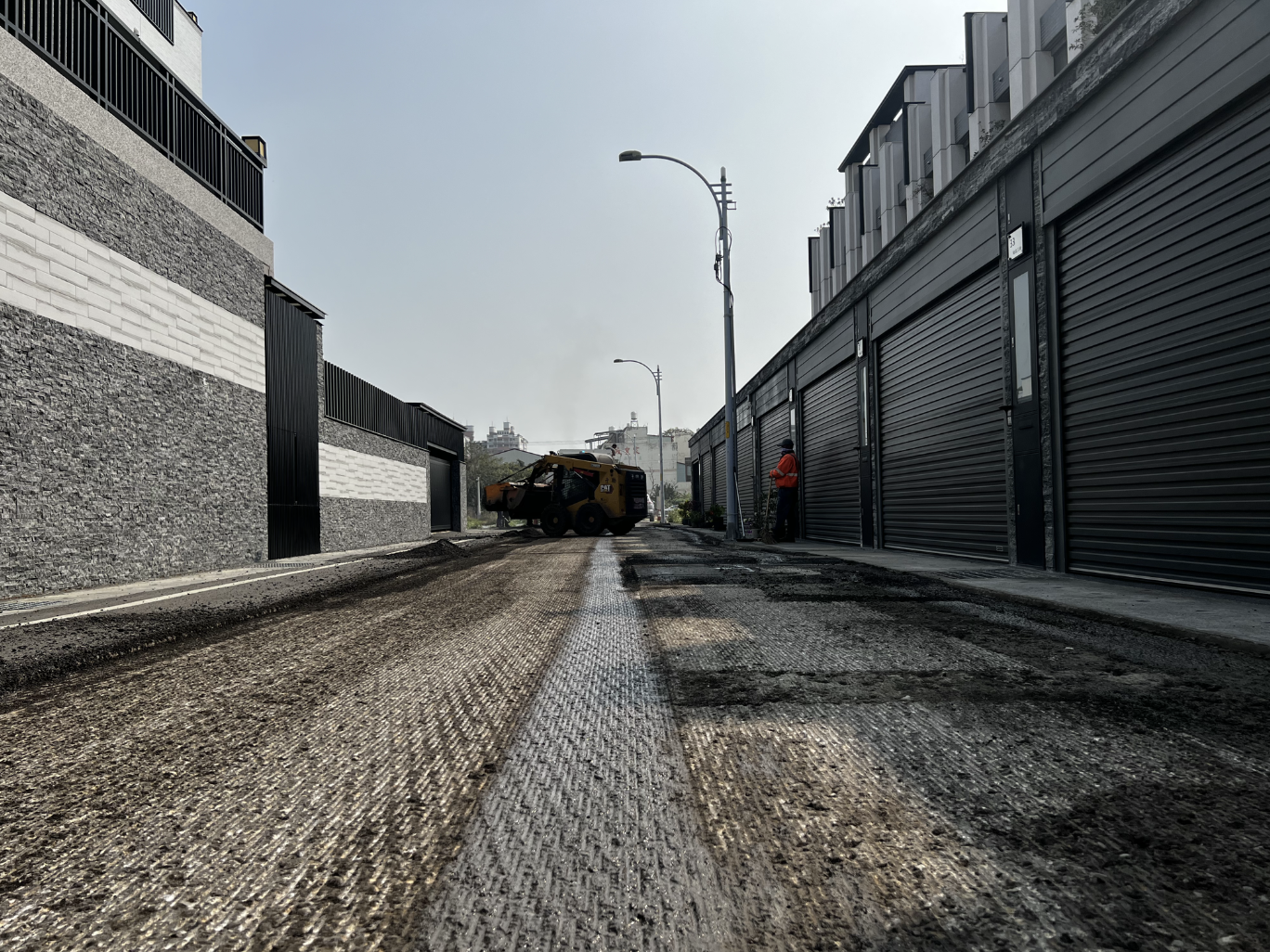
5. Discontinued Machine Models
For older or discontinued cold planer models, exploring custom-made replacement drums can be a viable option. Inquire whether the manufacturer can create a replacement drum tailored to your machine's unique specifications. This tailored approach maintains the standards of performance for machines that are no longer in production.
By carefully evaluating these considerations, you pave the way for making an informed and strategic choice of a replacement drum. Your careful approach and consideration will yield considerable rewards in the form of improved performance, extended machine life, and the assurance of operational excellence.
Conclusion
The decision to replace the milling drum or acquire a new cold milling machine is an important and highly nuanced one. Your choice will be largely shaped by a symphony of considerations that intertwine financial prudence, operational strategy, technological evolution, and environmental mindfulness. As you stand at this important juncture, the choice that you make can influence your projects, bottom line, and even the future direction of your company. If you follow the tips provided in this article and utilize the resources below you will greatly increase your chances of making the best decision for your company.
Ready to make an informed decision? Take these steps:
Find Quality Drum Replacements: Consult with our experts and get top-notch replacements for optimal performance.
Unlock your cold planer's full potential today!
.png?width=698&height=417&name=%E5%AE%98%E7%B6%B2logo%20(1).png)
